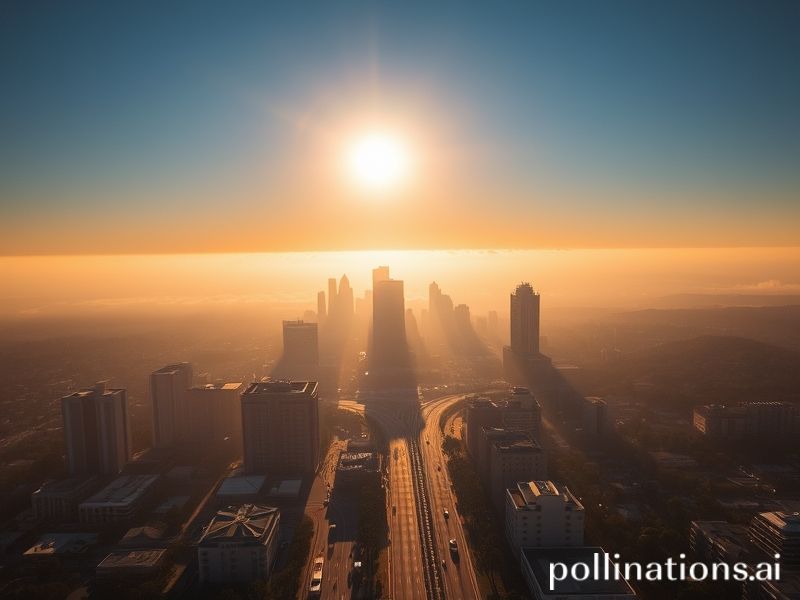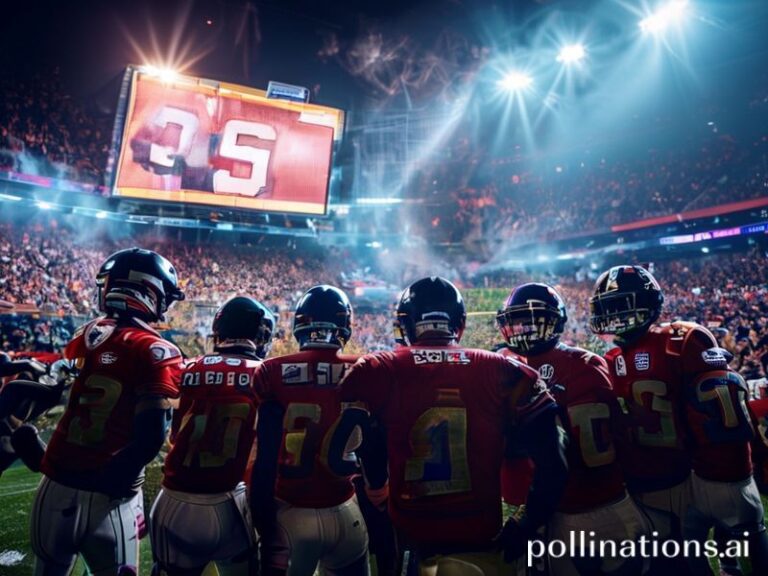Los Angeles Weather: The Planet’s Smug Luxury Export No One Else Can Afford
LOS ANGELES—Somewhere between the 14th selfie with a palm tree and the 3rd unsolicited screenplay pitch, the city’s weather delivers its daily punchline: 72°F, partly sarcastic, with a 30 % chance of existential dread. To the rest of the planet—currently broiling, freezing, flooding, or all three at once—this meteorological shrug is either an enviable luxury or a cosmic taunt, depending on which hemisphere you’re trying to grow wheat in.
From the vantage point of a Parisian café where the Seine has annexed half the terrasse, Los Angeles weather looks like a lifestyle influencer who never worked a day in its life: perpetually tanned, suspiciously wrinkle-free, and funded by someone else’s drought. In Jakarta, where the monsoon now arrives with the punctuality of a Swiss train and the subtlety of a chainsaw, Angelenos’ complaints about “June Gloom” inspire the same warmth reserved for billionaires who moan about yacht fuel prices.
Yet the city’s blandly perfect climate has become a geopolitical data point. Chinese factories time their emissions to coincide with L.A.’s Santa Ana winds, knowing any smoke will be whisked out to sea and rebranded as “marine layer” on Instagram. Meanwhile, European energy ministers study the city’s rooftop-solar saturation the way medieval scholars once pored over illuminated manuscripts—less for enlightenment than for competitive envy. After all, every kilowatt generated under that merciless sun is one Europe can’t buy from a former Soviet republic currently trading bullets for megawatts.
The United Nations, never a stranger to performative concern, has begun issuing “Climate Inequality Index” color swatches. Unsurprisingly, Los Angeles occupies the beige end of the spectrum—scientifically described as “SMH-17: Mildly Annoying UV, Triggering.” Delegates from nations whose shorelines are now abstract art routinely propose that L.A. be taxed on behalf of the troposphere. The motion dies every year because, as the U.S. delegate notes through a whitening-strip grin, “The motion wasn’t written in screenplay format.”
Economically, the city’s weather functions as a non-fungible commodity. Gulfstream jets loaded with venture capitalists descend like migratory geese, seeking the precise barometric pressure that makes NFTs and SPACs feel rational. If the marine layer thickens—an event locals treat like a biblical plague—fund-raising brunches relocate from rooftops to soundstages, where the fog machines are cheaper and the liability insurance more poetic. Analysts at the IMF have quietly started tracking L.A.’s cloud cover as a leading indicator of global liquidity; one stray cumulus and the Nikkei hiccups.
Of course, not all Angelenos are blind to the cosmic joke. In Highland Park, a startup is monetizing “weather guilt offsets”: for $39.99 a month, subscribers receive a curated box containing artisanal smog from Bakersfield, a vial of genuine Midwestern sleet, and a scented candle labeled “Regret (Coastal Sage).” The company’s valuation hit unicorn status after it secured exclusive rights to bottle Siberian permafrost methane—“the Tesla of guilt,” as its founder deadpanned to a panel of utterly charred venture capitalists.
Globally, the takeaway is as clear as the L.A. sky: climate stability is now a positional good, like front-row Coachella tickets or diplomatic immunity. While Bangladeshi farmers contemplate floating gardens and Dutch engineers audition for Aquaman, Los Angeles continues its serene 300-day streak of “meh.” It is, depending on your passport, either a beacon of human ingenuity or the planet’s smug shrug at the concept of shared sacrifice.
And still the city wakes up, taps the Weather app, and discovers—quelle surprise—that perfection is forecast again. Somewhere in the distance, a coyote howls, more out of habit than hunger. The rest of the world, meanwhile, checks its own forecast: 40 % chance of catastrophe, 60 % chance of pretending it isn’t happening. In that sense, Los Angeles weather isn’t just local; it’s the final luxury product exported to a planet that can no longer afford it.







